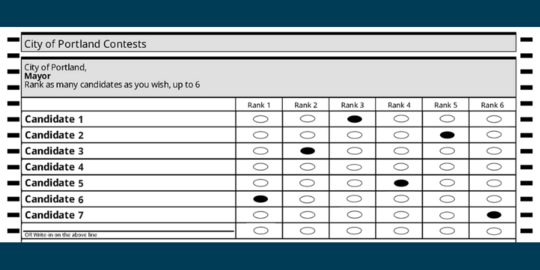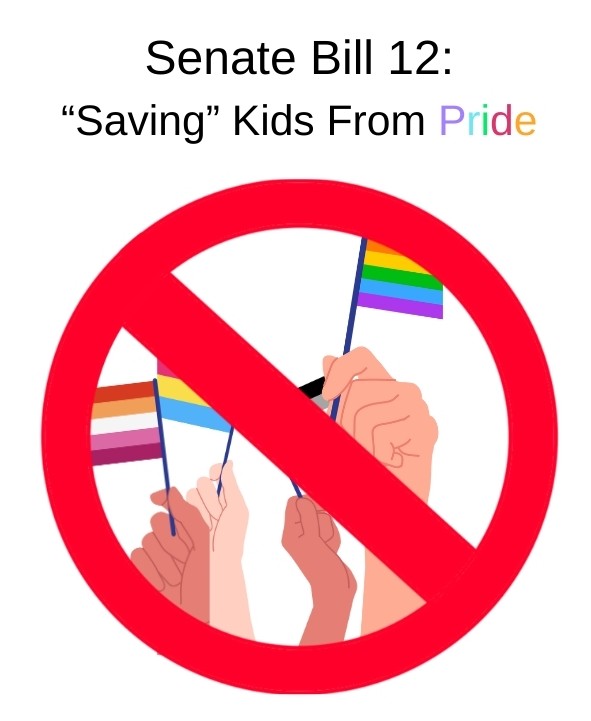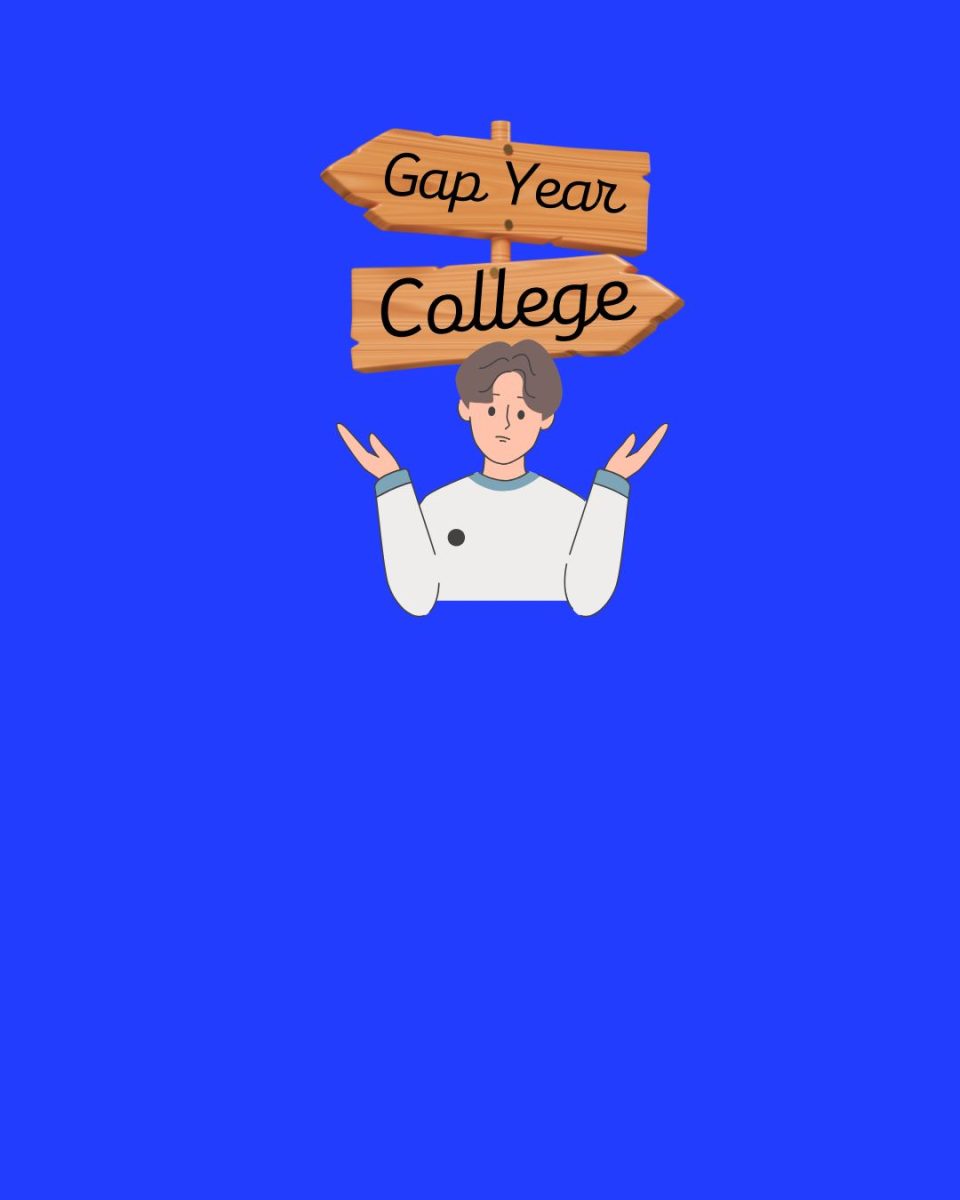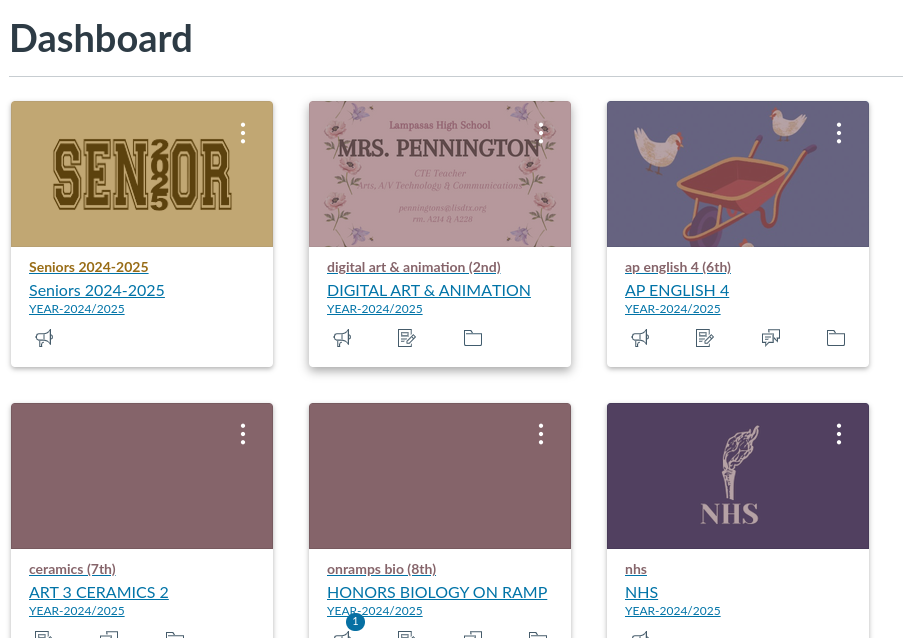
Online Learning: Helpful Or Harrowing?
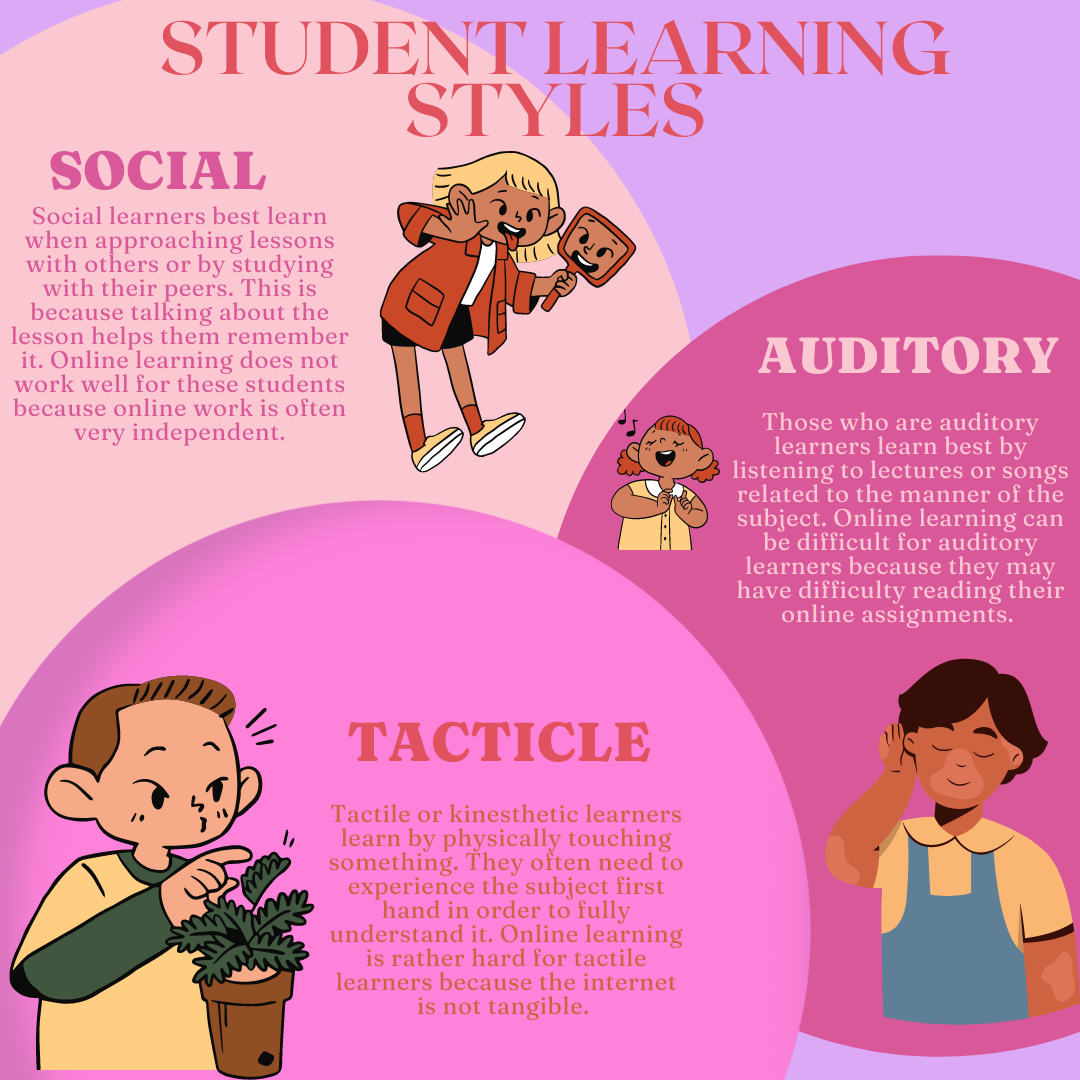
In schools across the globe, textbooks have been replaced with Chromebooks. Papers have been replaced with Canvas assignments and the ability to learn long term has been replaced with short term answers gained through digital literacy. Though online learning has negative effects on many students, it has risen in popularity over the years, especially during the COVID-19 pandemic, when in-person learning was not accessible. During this time, and even now, instead of being taught by teachers, students are assigned lessons online through presentations, articles and videos that they have to go through themselves and then answer multiple choice questions on an online education platform such as Canvas or Quizlet. Rather than actually teaching the students, teachers simply provide the materials for students to teach themselves, then students take a quiz that teachers don’t even have to grade because the platform automatically grades them.
Now that COVID-19 is over, there is no reason students’ education should be jeopardized due to the simple fact that using technology and internet resources for educational purposes is ‘easier’ than teaching students in interactive ways.
Teachers often encourage their students to use the internet as a resource, which is smart in theory, but when using the internet as a main source of information, it is easy for students to aimlessly scroll through websites until they find an answer. When students do this, they do not retain any information, and will most likely forget the small amount of information that they did absorb. Instead of allowing students to search for information that they will forget in a matter of minutes, teachers should spend time lecturing students in interactive ways. Online learning doesn’t only make it difficult for students to retain information, it is difficult all around because not all students are able to learn in that way. A large number of students require one on one time or visual examples to learn and process information. Online learning simply doesn’t offer the same learning experience in person or interactive learning does.
Another issue with online learning is that it encourages students not to interact with their peers. When given standard paper or textbook assignments, students can speak to one another about the material if they are having trouble understanding, but when learning online they can Google it instead. The ability to do this results in students having less productive conversations with their classmates, which can be damaging in the long run, as it may affect their ability to successfully work as a team and get along with others.
Another major concern with online learning is the fact that it is online, meaning that one must have a connection to the internet in order to access it. This is extremely harmful to students who do not have internet access at home. In cases when school internet is down, the students have unproductive class time because all their material is online. Though nine out of ten times, the internet works at schools, it is not always guaranteed. Students’ education should always be accessible, especially when they are physically at school. If students had paper assignments, or teacher taught lessons, the internet going down would barely affect them but in today’s world many students are unable to complete any work whatsoever if the internet fails to work.
Though at times the internet is a helpful tool, it should never be used as a main source of material when it comes to students’ education. Instead of encouraging online assignments, teachers should give their students paper or textbook materials. There is no doubt that the internet makes things easier, but that in itself may be the problem. Learning shouldn’t be easy.
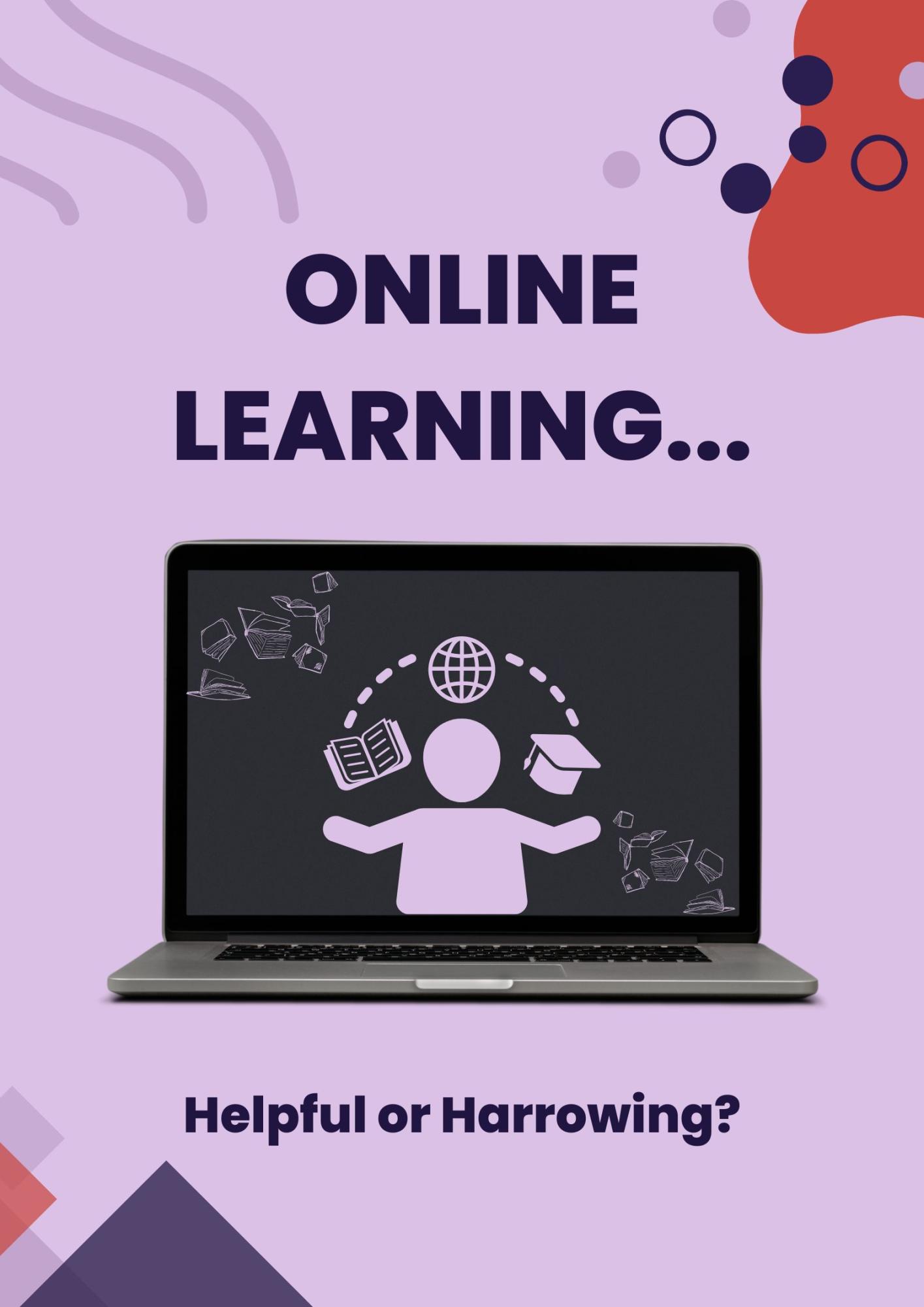
Students who typically learn online tend to be more attentive, self-motivated and flexible.
Online learning provides a sense of time management. Students are held accountable for their use of time as they find a balance between motivation and expectation. It is expected of students to wake up each morning at a reasonable time to make it to school. However, this is an effect of expectation rather than motivation. Online learning allows students to proceed with their day and classes at the rate of which they desire. Online curriculums typically permit students to complete their coursework within specific dates, disregarding the idea that assignments are assigned on this day and are to be completed on said day. Online learning allows students to go at their own pace while still being efficient.
This ties in with motivation. Students who attend public school are used to an instructor guiding them through classes and assignments. Being an online learner lacks this component of forced motivation. Students who remain online learners develop a motivated mindset as they are required to hold themselves accountable for keeping up with coursework or lessons at their own pace.
Socialization and interaction can be mentally exhausting for growing adolescents. Every student deserves to feel safe and comfortable within their learning environment. Although online learning should not be an exit from human interaction, it can be beneficial to the student as they attempt to dismiss environmental distractions.
Students have adaptability in the context of their schedule. For instance, if one were a morning person, classes could be taken with the rise of the sun. In contrast for a night person, classes could be taken at a later hour in the evening. Students have the choice to decide their own pace of learning as it affords more autonomy for adult life.
The usage of online educational apps such as Canvas, Edgenuity and iCEV contribute to the learning of students through easier accessibility and content. Canvas contains a multitude of features that include a to-do list, a calendar for classwork deadlines, and customizable courses. Instructors find assigning classwork through these programs manageable and simpler than having to locate paperwork that could potentially be lost. Students persevere through their motivational levels and adapt to the online classwork as they navigate the simplistic online systems with clarity.
Therefore, online learning is a beneficial way for students to earn a diploma.





